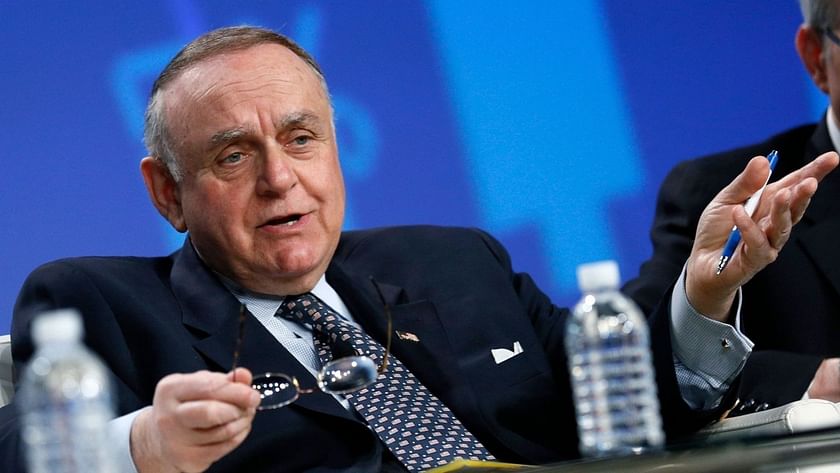Hedge fund billionaire and Columbia University graduate Leon Cooperman has expressed his concerns about recent pro-Palestinian protests by university students and professors. He mentioned that he might suspend his donations to the college if he doesn’t see a change.
The 80-year-old Cooperman also made critical comments about the students involved in the protests, stating, “We have one reliable ally in the Middle East – that’s Israel. We only have one democracy in the Middle East, and that’s Israel. And we have one economy tolerant of different people – gays, lesbians, etc., and that’s Israel.”
In light of the recent conflict in the Middle East, where Hamas entered Israel, causing significant loss of life, Cooperman expressed his concerns about the student protests at his alma mater, Columbia University. He emphasized his intention to stop donating to the university unless he observes a change in the situation.
He further mentioned, “Now, the real shame is I’ve given Columbia, probably about $50 million over many years. I’m going to suspend my giving. I’ll give it to other organisations.”
Billionaire Leon Cooperman Threatens Donation Withdrawal Over University Policies
In a recent interview, billionaire Leon Cooperman, whose net worth stands at approximately $2.8 billion, indicated that he would withhold further donations to Columbia University unless he sees a change in its policies. When asked if this was indeed his stance, Cooperman responded with a resolute, “Yeah, unless I see a change.”
This decision by Cooperman follows controversy surrounding a professor at Columbia University, Joseph Massad, who teaches Modern Arab Politics and Intellectual History. Massad had sparked outrage by describing Hamas’ attack on Israel as “awesome” in an article published on The Electronic Intifada, going so far as to label it a “stunning victory.”
In response to this, a petition with over 60,000 signatures has emerged, demanding Massad’s termination. The petition accuses him of “condoning and supporting terrorism,” asserting that regardless of one’s stance on the conflict, supporting and praising such a significant act of terrorism is unacceptable.

In a counteraction, a letter has been issued in support of Massad, signed by thousands of alumni, staff, and students at the university. This letter condemns the petition and calls upon Columbia University’s President, Nemat Shafik, to “unequivocally guarantee his physical safety and his academic freedom.” The situation has ignited a debate within the university community about the boundaries of academic freedom and the consequences of expressing controversial views.
University’s Response and Commitment to Inclusive Communication
Cooperman expressed his strong concerns by urging the University to take action and terminate Professor Massad’s employment. In his words, he stated, “I told them that they should fire this professor that made the comments he made.” His sentiments were rooted in the belief that while war is undeniably a terrible and destructive force, supporting the actions of Hamas was, in his view, deeply reprehensible.
Cooperman emphasized that he recognizes the horrors of war, saying, “I mean, war is hell. War is not good for anybody.” However, he firmly stood against the endorsement of Hamas’ actions, which he described as “disgraceful” and “disgusting.” This position underscores his strong opposition to any form of support for an organization that has been a subject of intense controversy.
The University responded to this situation by taking the unprecedented step of canceling the Columbia Giving Day. In their official statement, they explained that this decision was made after careful consideration and consultation with University and alumni leadership. They mentioned that postponing the event was necessary at this time, with plans to decide on its rescheduling in the near future. This move indicates the University’s commitment to addressing the concerns and sensitivities surrounding this matter.
It’s worth noting that earlier in the month, University President Shafik issued a statement encouraging students to use language that is respectful and avoids vilifying, threatening, or stereotyping entire groups of people. This call for responsible and considerate communication reflects the University’s commitment to fostering an inclusive and respectful environment on its campus.





